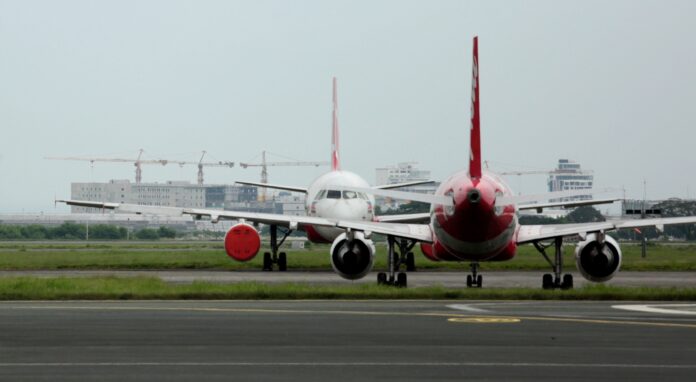-
Clark International Airport Corp. is proposing a reorganization plan that includes turning Clark Civil Aviation Complex a service and logistics center in Southeast Asia
-
CIAC plans to strengthen the agency’s commercial, engineering and corporate management teams to achieve the vision of CCAC as a service and logistics center and a globally competitive aviation complex surrounding the airport
-
The reorganization plan was approved in 2019 by the agency’s board of directors and is awaiting endorsement by the Bases Conversion and Development Authority and the Department of Transportation
-
CIAC is implementing an infrastructure expansion with a budget of P1.7 billion
State-run Clark International Airport Corp. (CIAC) is proposing a reorganization plan that includes turning Clark Civil Aviation Complex (CCAC) into a service and logistics center in Southeast Asia.
CIAC president Aaron Aquino, marking the agency’s 26th year of managing the Pampanga air hub, highlighted in a statement on February 7 the plan to further develop prime government lands within the aviation complex.
CIAC’s streamlining is expected to strengthen the agency’s commercial, engineering and corporate management teams in line with the plan to develop a globally competitive aviation complex surrounding the airport and to push for the service and logistics center vision, Aquino noted.
CIAC is a government-owned and controlled corporation (GOCC) that manages CCAC, home to privately run Clark International Airport (CRK), the mixed-use business district Clark Global City, and around 45 locators in manufacturing, cargo and aviation-related businesses.
From the original 335 employees, 120 currently remain at CIAC after CRK operations and maintenance were privatized in August 2019. CIAC’s major function is to lease land, structures, and spaces for potential investors and businesses involving aviation, aviation-related services, and aviation-related logistics activities.
Late last year, presidential adviser on Clark flagship projects Gloria Macapagal-Arroyo advised CIAC to shift from a mere real estate developer to “being the most competitive service and logistics center in the Southeast Asian region.”
The reorganization plan was approved on October 28, 2019 by the agency’s board of directors.
The reorganization plan is awaiting endorsement by the Bases Conversion and Development Authority (BCDA), CIAC’s parent company, and the Department of Transportation (DOTr), which exercises policy and operational supervision over CIAC. The plan will then be submitted to the Government Commission for GOCCs for final approval.
Aquino said the reorganization plan will set in motion a blueprint to further direct CIAC toward airport infrastructure and aviation complex development, technological deployment, and adaptation to the new normal.
He added that the current pandemic notwithstanding, CIA is looking forward to future investments by “creating an investment haven and a great place at the aviation complex to do business.”
Aside from the reorganization plan, CIAC is implementing an infrastructure expansion with a total budget of P1.7 billion. In the pipeline are four vital components, namely:
- A new air traffic control tower costing P375 million, which will be the tallest in the country at 18 stories or 54 meters in height
- The upgrading of the airfield ground lighting system for P500 million
- A new radar system amounting to P645 million
- The P200-million detailed engineering design of the second runway in conformity with the CRK master plan—which was approved via the General Appropriations Act of 2020 under the account of BCDA
CIAC was incorporated in 1994 as a wholly owned subsidiary of Clark Development Corp. (CDC), pursuant to Executive Order (EO) No. 192, with the primary purpose of operating and managing the Clark Civil Aviation Complex.
After subsequent executive orders in the past, CIAC was later transformed in 2008 from a subsidiary of CDC to a subsidiary of BCDA and made subject to the policy supervision of DOTr under EO No. 716, which provides that CIAC shall exercise jurisdiction over the 2,200-hectare aviation complex, along with about 166.9 hectares within the Clark Industrial Estate 5.





